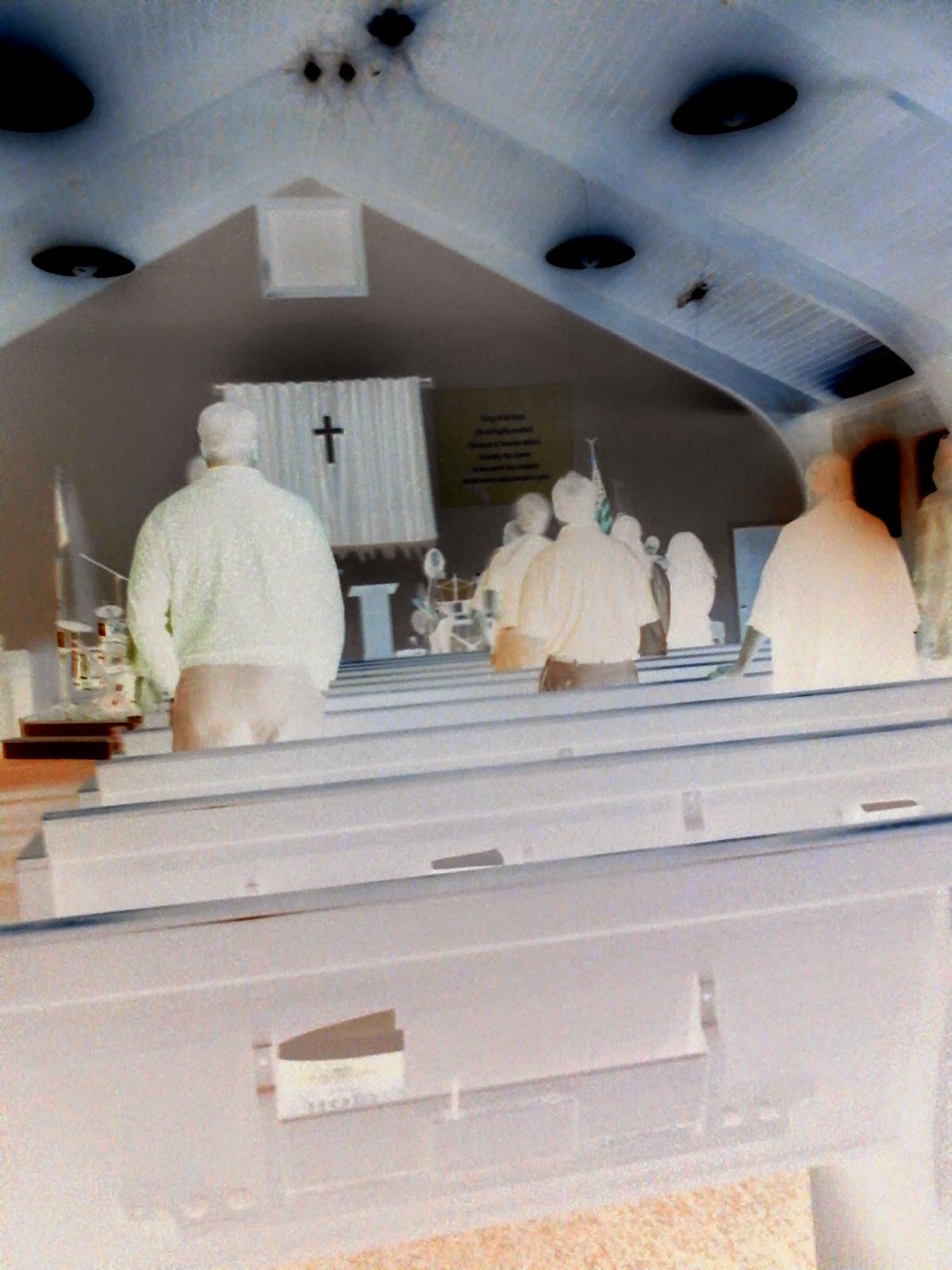Joshua 5:9 “And the Lord said unto Joshua, This day have I rolled away the reproach of Egypt from off you. Wherefore the name of the place is called Gilgal (rolling) unto this day. “ In the case of the children of Israel, they lived under the reproach of having surrendered to Egypt, being held as slaves in their dominion. Even after having escaped by the strong hand, and with the stretched out arm of God, they were mocked from Egypt, as seen in Exodus 32:12 . “Wherefore should the Egyptians speak, and say, For mischief did he bring them out, to slay them in the mountains, and to consume them from the face of the earth? Turn from thy fierce wrath, and repent of this evil against thy people. “ also in Moses prayer, in Numbers 14:14-16, ” And they (the Egyptians) will tell it to the inhabitants of this land:” “Now if…
Tag: <span>co-crucifixion</span>
We face perilous times. These times include harassments, distractions, risks and threats. However these perils are nothing more than statues on a lawn, pictures on a door, costumed children at our house for “trick or treat.” Though very real to those who “keep” their life, they fade away to those “losing” their lives — to those “dead” and hid with Christ in God. see Colossians 3:3. Let’s consider 2 Corinthians 5:14-15, “For the love of Christ overmasters us, the conclusion at which we have arrived being this–that One having died for all, His death was their death, and that He died for all in order that the living may no longer live to themselves, but to Him who died for them and rose again. — Weymouth translation. You see, ” For, with me, to live is Christ and to die is gain.” was Paul’s striking testimony in Philippians 1:21. He saw…
Isolated? yes, so are many, but loneliness hurts people at holiday times. Is there help? Let’s look at some clinical observations first. “At the root, isolation compromises immunity, increases the production of stress hormones, and is harmful to sleep. All of this feeds chronic inflammation, which lowers immunity to the degree that lonely people even suffer more from the common cold.” “If we cling to the belief that we should be perfect, we may not risk doing things that might expose our imperfections. …we don’t want the risk of being disappointed. Our fear of failing keeps us isolated.” “…fear of facing shame or embarrassment. We don’t want to be seen as defective—or see ourselves as flawed.” psychologytoday John Amodeo Ph.D., MFT A solution is offered: “The curious paradox is that when I can accept myself just as I am, then I can change.” Carl Rogers “…This takes a courageous willingness to feel sad or disappointed sometimes, or even a mild sense of shame, which…
Church in Hungary “Knowing this, that our old man is crucified with Christ that the body of sin might be destroyed, that henceforth we should not serve sin.” Is this the cross of your life or some other? If this one frames us, we know with the mind a once and forever done-by-another-for-me deal, (perfect passive indicative tense). The present tense “knowing” practically effects the destroying of the “The body of which sin has taken possession.” All of it enables me to not be a slave to sin. Jamison, Faucet, and Brown cite our new relationship with Christ and says: “The apostle now grows more definite and vivid in expressing the sin-destroying effectiveness of our union with the crucified Savior.” So that “all that we were in our old unregenerate condition, before union with Christ,” “was” crucified with Him. Henceforth, we are not in bondage to sin. So, we have…
Always carrying about in our body the death, state of death, dying, liability to death, or suffering of Jesus? Which one is revealed in 2 Corinthians 4:10? Well, I understand that I will suffer what is common to man in this world, I am liable to the death of my physical body at all times, and I am aware that I am dying and one day will eventually die as the body grows old and expires. My question is; how do these produce life in others? I have a tendency toward agreement with certain scholars that the “state of death” of Christ gets the reference here. This is the one given to me at salvation and this is what I carry. Why? Because, by His death, my “death” died. Yes, my being dead in trespasses and sins, died, by the death of my Savior, and this reality I carry with…
“Those who do not know how to weep with their whole heart don’t know how to laugh either.” Golda Meir When men or women cry there starts a chemical release which has been observed and documented by professionals. Apparently only certain substances comprise tears and their flow alters a person’s physiology in a refreshing. “…weeping is an excretory process which removes toxic substances that normally build up during emotional stress.” “… tears of stress reduced the bodies manganese level, a mineral which affects mood and is found in up to 30 times greater concentration in tears than in blood stream.” “…emotional tears contain 24% higher albumin protein concentration than eye irritants.” These quotes were borrowed from Pancreatic Cancer Journey.com. This “tear” talk reminds us of the ways of old-school Bible psychologists who cited bodily functions and organs as corresponding to certain actions of the soul. In their repertoire are head,…
Emotions and the cross of Christ connect uniquely, but rarely. These Feelings follow right thinking and the center of thought is the key. When old patterns of thinking are discarded for Bible-based new ones, the responders rejoice and these are new emotions. So, what of the old feelings? Crucified with Christ, they live, yet not them but Christ lives in them, and consequently they then live by the faith if the Son of God. Cool, huh? See, God wants more for us than just feeling good, or lovely sentiment or even good-heartedness. God sent His Son to crucify the old letter-bound man to create a new one. All things are brand new in Him. We ought not, going forward, think in terms of “how-to,” but in terms of “who I am,” and if my “I am” is in Christ, my old emotions are dead and my new ones are alive.…
Abraham muffed the next one, big time —fooling around with Sarah’s handmaid, Hagar. He belittles God’s promise and miscalculates God’s ability to accomplish His promise with the true son, Isaac. One explanation would be; the works of God still seem vague to Abe, and not always so easy for him to discern. Not to defend Abe, but maybe when Sarah made the suggestion to reproduce a child with her handmaid, Abram could have thought, “God must work this way in a practical-sense.” Lets be real, Abraham was being schooled in an intricate-walk-with-God “faith” classroom. To state the obvious, God shows Himself not to the human eye. Abraham, not quite getting it yet, opens the story’s other side to view. I will concede, however, Abe’s sexual-manhood most likely encouraged the compromising. His motives were wrong. Because this was sin, God’s forgiveness remains the only remedy. So, for us a problem also…
God has begun a Project in us, are we available? Yes, God will perform the thing concerning us, no problem. Will we let Him? He’ll work the plan in faithfulness, will we faithfully cooperate? Explain? It’s easier to understand this relationship when we consider God’s ends for us. When we do, our part simply responds, responds, responds. God has marked out boundaries for a believer’s life, did you know that? What kind of boundaries? —boundaries set from God’s foreknowledge. For instance, He already knows beforehand the number of people we will meet in our whole life. He knows how much money we will make. He knows every decision we will encounter and the ultimate outcome of our choices. He knows how many times we will ignore our choices. He knows our thoughts afar off, and yes, He knows our name, and our wife and children too. So, with the advantage…
People who understand grace also understand the meaning of the cross. It’s vital for the application of grace to personal situations. “Grace embrace” and “cross” require a commitment, and that “surrender” leaves self behind and moves Father-bound. Jesus cried out from His cross, “Father, into Thy hands I commit my Spirit.” Likewise, we commit our works unto the Lord toward established thoughts, in Proverbs 16:3. When we commit our way unto Him, the way comes to pass. (Psalms 37:4-6). We commit the keeping of our soul unto Him. He keeps it. In Romans 6, Paul showed us a bunch of facts to memorize, namely: we were (at salvation) baptized (immersed) into Christ and His death; two-we were buried with Him because of this saturation; three-since Christ was raised, we could walk in a new life; and four-we were joined to Him in perfect equivalence to His death and resurrection. See, united to Him…









